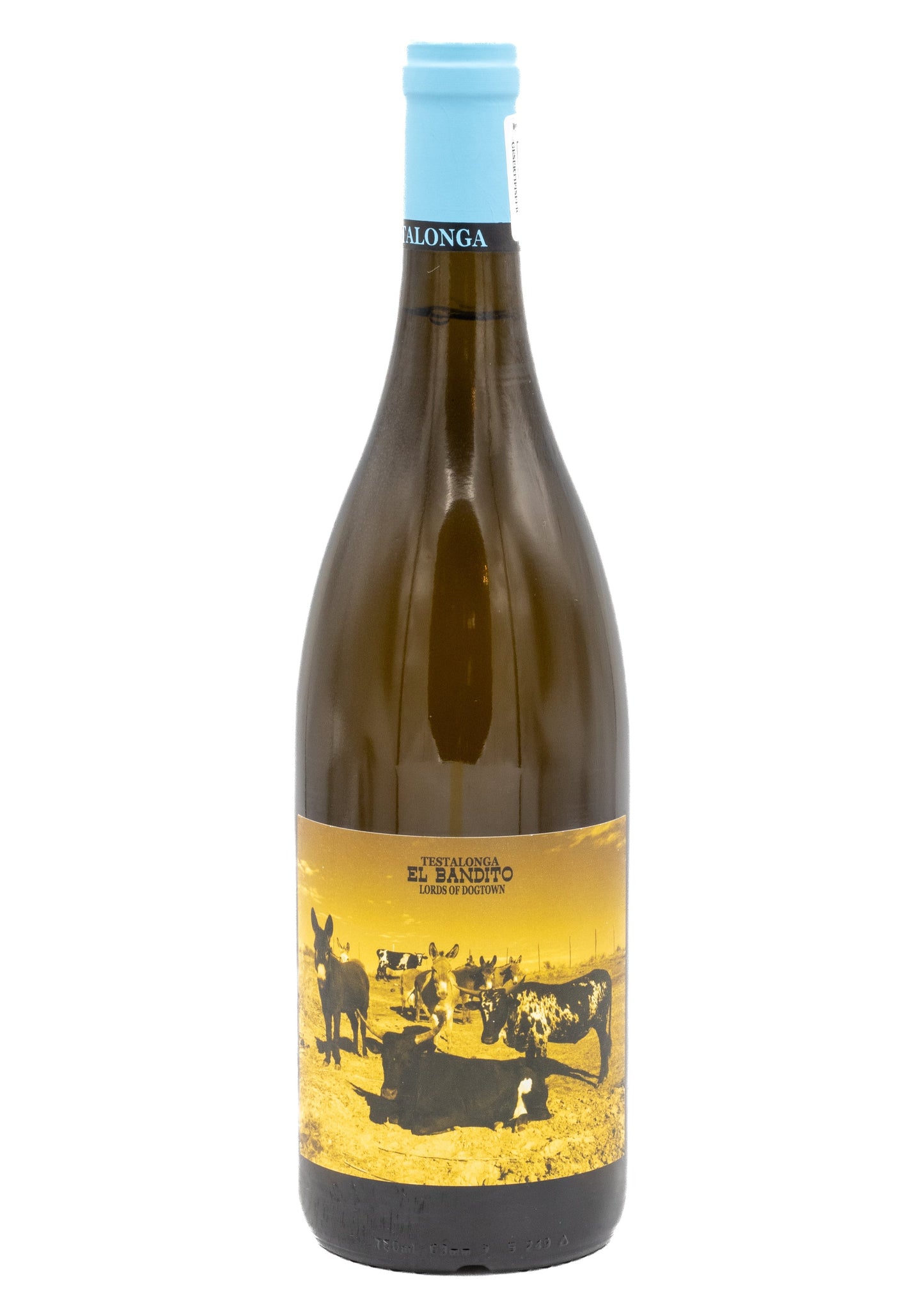Testalonga El Bandito Lords of Dogtown 2022
Testalonga El Bandito Lords of Dogtown 2022
Couldn't load pickup availability
A waxy medium-gold colour. There are rays of piercing citrus, fresh grapefruit and baked lemon curd on the nose with a wealth of other aromas. Young, fresh, pure and elegant. Bright apple and mineral flavours with a complexity and persistence that defies its youth.
COUNTRY Swartland, South Africa
VARIETY Chenin Blanc
STYLE Bright & Bold
ABV 12.5%
WINEMAKER Testalonga El Bandito
FUN FACT This vineyard was previously abandoned, so this is the 3rd year that Craig has been resurrecting it. This wine is (usually) exclusively for Japan and RSA as only 300 bottles were made.
ABOUT THE REGION
Wine production in South Africa is characterized by a rich tradition dating back over three centuries, with regions like Stellenbosch, Franschhoek, and Paarl renowned for their picturesque vineyards and quality wines. Shiraz, Cabernet Sauvignon, and Chenin Blanc are among the popular grape varietals cultivated in these regions, reflecting the diverse terroir and climates. South African winemaking is most celebrated for its bold and complex red wines, vibrant white wines, and its unique blend of Old World elegance with New World innovation.
Share

Organic, Biodynamic and Natural wine. What’s the difference?
To understand this concept and its various ramifications, it is necessary to keep something clear in mind: before the 20th century and the spreading of affordable synthetic fertilisers, all farming was organic. When the shift to the use of synthetics and pesticides happened, it became necessary to diversify traditional organic farming from the new modern farming.
ORGANIC WINE
Simply put, organic farming forbids the use of synthetic fertilisers, synthetic pesticides, herbicides, or genetically modified organisms. The basic requirements are generally specific and engage the farmers not to use any chemical fertilisers and other synthetic products in the vineyard. It does not prevent the vintner from using the conventional winemaking process after harvesting.
BIODYNAMIC WINE
Let’s take organic farming one step further: Biodynamic. The creator of this agricultural system is the Austrian philosopher Rudolf Steiner, who developed the principles of biodynamics in a series of lectures given in 1924 in Germany. Here lies the foundation of true organic wines, with a strict limit in the use of additives, stringent requirements and at the end obtaining a biodynamic certification.
NATURAL WINE
The previous definitions are usually, and rightfully, associated with it, because most natural wine is also organic and/or biodynamic. But not vice versa!
Natural wine is wine in its purest form, simply described as nothing added, nothing taken away, just grapes fermented. No manipulation whatsoever, minimal intervention both in the vineyards and in the winery. Healthy grapes, natural yeast and natural fermentation, with no filtration nor fining. Sounds easy, right? However, making natural wine is unforgiving and it requires a bigger amount of work than conventional wine. To this day, natural wine has no certification yet.

